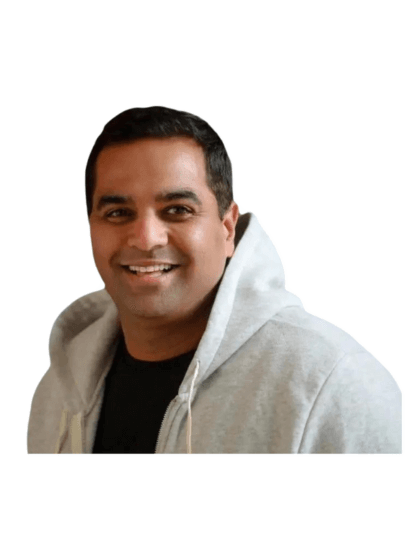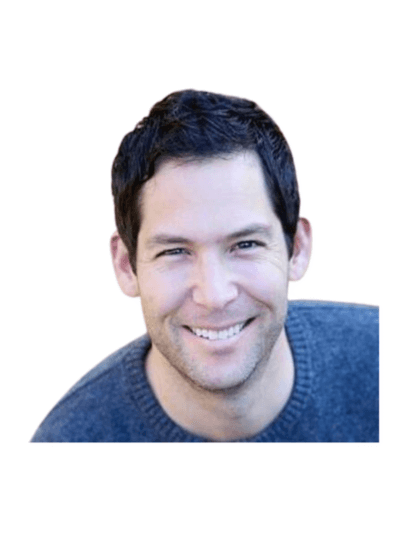
13

Episode 13 41 minutes
How to Find Your Zone of Genius
Alex MacCaw, CEO AT CLEARBIT
00:00
00:00

“Improving management has massive ripple effects, both in terms of output, but also in terms of happiness. If you ask someone if they're happy in their job, the answer largely depends on who the manager is. People tend to leave managers rather than companies.”
In this episode
In Episode #13, Alex MacCaw (CEO at Clearbit) describes the frameworks and best practices that managers should adopt to constantly improve their leadership skills. For instance, finding your “Zone of Genius” and helping your teammates find their own.
He also explains Clearbit’s “Impeccable Agreements” and how they can help you improve communication and collaboration across departments.
Clearbit is a San Francisco-based business intelligence company that has raised more than 17 Million dollars in funding and serves as the data backbone to thousands of businesses such as Slack, Stripe, Intercom, and Adroll.
As the co-founder and CEO, Alex puts an immense focus on leadership and personal development. In fact, he recently announced Clearbit’s mission to become the best-managed company in the world.
If you’re someone who loves personal growth and, like Alex, are always looking for ways to improve at your craft, this episode is for you.
. . .
Like this episode? Be sure to leave a ⭐️⭐️⭐️⭐️⭐️ review and share the podcast with your colleagues.
3:15
New Zealand’s emerging tech community.
4:23
Alex’s mission to build the world’s greatest company and his passion for management and leadership.
5:32
As a founder, when is a good time to stop building and start leading?
7:26
The ripple effects of improving management + why is leadership training so important.
8:00
What’s the main difference between “The Great CEO Within” and “The Manager’s Handbook”?
10:15
The Zone of Genius framework.
13:02
Tips to find your Zone of Genius.
14:00
Why building a team is like casting actors for a film.
14:42
Communication problems between teams and how Impeccable Agreements can help.
19:25
The side-effect of impeccable agreements.
20:34
Accountability cadence in weekly one-on-one meetings.
22:06
Clearbit’s OKR system: the pyramid of clarity.
26:01
Alex’s lessons and best practices for managing a hybrid remote company.
30:46
Managing yourself before managing others: Alex’s rituals and productivity best practices.
34:53
Why Jean-Luc Picard’s leadership model is “tiring” + the importance of showing vulnerability and emotions.
Resources
- The Great CEO Within by Matt Mochary (Author), Alex Maccaw (Contributor), and Misha Talavera (Contributor)
- The Manager’s Handbook
- Getting Things Done
- The Manager’s Handbook podcast
Episode Transcript
Aydin Mirzaee (Fellow.app) 2:35
Alex, welcome to the show.
Alex MacCaw (Clearbit) 2:38
Thank you for having me.
Aydin Mirzaee (Fellow.app) 2:42
Yeah, this is amazing. I’ve been looking forward to this for a long time. And this is a very special call. We’re doing this during pandemic time. Obviously, everybody at different locations, but you are in New Zealand.
Alex MacCaw (Clearbit) 2:57
That’s right. I’m in New Zealand, a couple of hours away from anywhere. I got caught here on vacation. But I’ve been here for lockdown.
Aydin Mirzaee (Fellow.app) 3:09
That’s amazing. And I have to ask, is there a burgeoning tech community there?
Alex MacCaw (Clearbit) 3:15
There is actually. New Zealand is an incredible country. There is a great burgeoning tech community. I’ve invested in three TV companies so far.
Aydin Mirzaee (Fellow.app) 3:27
Oh, wow! Stimulating the economy already. That’s awesome. That’s very, very cool.
I’ve been wanting to do this for a while. I’ve been witnessing all the things that you’re doing at Clearbit, but also, you’ve been an avid writer. One of the things that is interesting about Clearbit, your company, is that you set out this mission to create the best managed company in the world, which is awesome.
I’m just curious, it’s a very ambitious and great goal. I’m just wondering Where the interest actually came from, and How you just decided to do this at Clearbit and make it one of the things that you focus on?
Alex MacCaw (Clearbit) 4:23
Well, if you told me five years ago that I’d be writing a book on management, I’ll be telling you that you’re crazy. Honestly, it wasn’t a massive interest of mine. I was quite an introverted nod for the longest time and found myself CEO of this growing tech company, and realized I really needed to stop coding and start leading.
And it was a long process but the key point along the way was getting this CEO coach called Matt Mochary. And he showed me his Mochary methods. And we ended up writing a book together called The Great CEO Within, detailing this method. But I essentially took his method and then elaborated on this and created what we have today at Clearbit.
Aydin Mirzaee (Fellow.app) 5:22
That’s amazing. How far along were you in building the company that you met Matt and you started this whole journey?
Alex MacCaw (Clearbit) 5:32
So I think we were maybe two years in, we were about 25 people and for reference we are close to 200 people today. And that I think is around a good time for that. So thinking about management if you’re a leader or a founder of a startup, at some point you need to stop building, stop being an IC and start leading. Start building the machine that builds the machine. And I think that’s about 25 people. And it’s better to do it earlier than later, you know, I’ve worked places where they’ve added management in, when there were hundreds of employees, and at that point is painful.
Aydin Mirzaee (Fellow.app) 6:19
What’s interesting about this is, as an external observer, looking at Clearbit and reading something like “Best managed company in the world”, it kind of reminds me of General Electric at the time, maybe not so much anymore, who knows? But, they were always “World’s Most Admired” company. And one of the things that they had was this great management program. And it was almost as good as an MBA or even even better.
Many, many great companies, you know, I think McDonald’s had its famous management program and it’s really interesting. You’ve really taken this and made this your own. I’m curious, for people who haven’t read the books and I highly, highly recommend both of them. What are the differences between what is talked about in The Great CEO Within and The Manager’s Handbook, which is the book that Clearbit is publishing on management?
Alex MacCaw (Clearbit) 7:26
Yeah. So to touch on your earlier point first, what really excites me is the amount of leverage there is in management. By improving management, even by a small percentage, that has massive ripple effects, both in terms of output, teams output but also in terms of happiness. If you ask someone if they’re happy in their job, the answer largely depends on who the manager is. People tend to leave managers rather than companies.
And the turn thing is there’s so much low hanging fruit that’s there, that we don’t invest in when it comes to management. You know, companies generally and suddenly Startups don’t even have a management training program. So if you think about how someone becomes a manager, they’re an individual contributor (IC) who does a good job who then gets promoted into management, and that really isn’t a promotion it is a career change. They generally didn’t have any training for it at most companies. Full-list it is a completely different job. And that’s why I wanted to write this book. The Manager’s Handbook, and you can find it under themanagershandbook.com, it’s free.
The only goal of this book is to try and share some of the things that we’ve been doing at Clearbit to improve the state of management in the world today. Really the big difference between these two books is the first one, The Great CEO Within it’s targeted towards founders. It’s all about setting up the systems that help you scale the company. The Manager’s Handbook is targeted towards managers is, hey, what are the components of becoming a great manager?
Aydin Mirzaee (Fellow.app) 9:28
Very cool. And so speaking of the components of becoming a great manager, and by the way, I love the way that you phrase that which is not a promotion, it’s a career change. That is incredible and very apt.
But speaking of what makes a great manager, one of the things that I really, really enjoyed in the book and it’s such a great mental model that I’ve definitely talked to my team about is just this concept of the Zone of Genius framework. I was curious if for the audience out there, you could just tell us about the zone of incompetence/competence and and the whole framework and how it all works and how you use it at Clearbit.
Alex MacCaw (Clearbit) 10:15
Absolutely. So, like practically everything else in this book I’ve completely stolen and ripped off this framework. And this one’s from The Big League by a guy called Gay Hendricks. And the zone of genius framework is quite simple, quite powerful. So the idea is that there are four zones: zones of incompetence, competence, excellence and genius.
The zone of incompetence is probably pretty clear to most people. What a zone of incompetence is, is stuff you shouldn’t have basically. And if you have work that you’ve been given that is in your zone of incompetence, you shouldn’t be doing it. Either it should be delegated to someone else or you should be in a different company.
Now zone of competence. So these are tasks that you’re good at, but other people can do better. And so, again, what that flows under this category should be delegated or redistributed into people more suited for it.
And then you have the zone of excellence. And this is when most people get caught up. So this is where you’re really good at something. But it doesn’t give you energy. So let me tell you a story. I once worked with this COO, who was a fantastic COO. He was super talented, he could do everything that was required of him. But after a couple of years, he just got burnt out. And you know why? It just didn’t give him energy. Being a COO was something he was really good at. But it didn’t give him energy. And that is the difference between what we call the zone of excellence and the zone of genius.
When you’re in your zone of genius, you are uniquely good at whatever it is you’re doing, and it gives you energy. And some people will say “Alex, how do I know if something gives me energy or not?”. And usually, a good sign is if you sit down and you start doing something, and then you look up, and it’s dark, and you’ve been working for hours now on something and the time just flies by and that’s generally a good sign that something gives you strength. It gives you energy.
Aydin Mirzaee (Fellow.app) 12:44
I love that. And so How often do you come across people that can very readily identify what their zone of genius is? Or is it something that you clue in on as you progress through your career. Can you find new ones? That’s another question.
Alex MacCaw (Clearbit) 13:02
That’s a great question. And there is a framework for finding it. And I need to actually include it in the book, but I’ll just outline it verbally. You can do some self diagnosis. That’s like the first method for finding this zone of genius. But I think the real way you do it is you ask other people. We’re not really reflective enough to answer these things ourselves, we are too in our heads and in our space, we need that third party feedback to actually figure out what it is.
But if you find yourself getting worn out, burnt out, if you find yourself in that situation, then it’s usually a sign that you’re not actually operating in your zone of genius.
Aydin Mirzaee (Fellow.app) 14:00
Yeah. If you’re basically killing it at whatever task, but you’re just not feeling fulfilled at the same level. And so I guess one of the things that managers need to do with their teams is try to figure that out. Figure out what is the zone of genius for everyone.
Alex MacCaw (Clearbit) 14:24
Yes, so I like to think of it like you are casting a film, and you want to cast the right actors into the right roles, and really understanding your team in particular strengths and weaknesses will help you do that.
Aydin Mirzaee (Fellow.app) 14:42
Yeah, totally. The manager in some cases is, like you said, directing the film,coaching the team. Critical information that makes a huge difference.
Switching gears for a second. I also wanted to talk to you about something that you do at Clearbit–And it’s also in the book- about impeccable agreements. So the reason I wanted to ask about this is because this is a sort of very common thing that certain groups within companies tend to not like each other. So maybe sales doesn’t like marketing that much, or they complain about each other. Or maybe it’s customer success and engineering that tend to argue a lot. And it’s always one blaming the other. And I’m just curious, What an impeccable agreement is, and can it help?
Alex MacCaw (Clearbit) 15:42
So impeccable agreements can help in this case, but what it sounds like you’re talking about is a communication problem between teams. And this is a classic problem as companies scale. Teams get a little territorial and it becomes less about what is great for the company, and becomes more about what is great for the team. And generally, when there are communication problems, they’re actually underlying planning problems. And we can go into that, we use what we call the pyramid of clarity to plan out all about OKRs. But that is what my learning over the years has been. When I’ve seen into intra-team issues and communication breakdowns it’s been because we haven’t been planning properly. But impeccable agreements are definitely something that helps with that.
So every day at Clearbit, hundreds if not thousands of agreements are being made. And this could be an agreement as simple as writing a blog post or submitting some bit of content for review or whatever it is, just any agreement between two people at Clearbit. And this happens hundreds and hundreds of times a day. And in most companies, a lot of these agreements get lost. There’s this degradation to the agreement and someone might follow up in a week say “oh, did you do that?” And the answer is no, because that agreement got lost, or maybe something was done, but it wasn’t quite what the original person agreed to or at least it wasn’t mutually agreed to. So, an impeccable agreement is trying to solve for that. So basically, whenever two people actually have an agreement at Clearbit, it needs to be impeccable.
What that means is it is recorded and we use Asana and I highly, highly recommend Asana. And it’s got to be written down in Asana. So number one, it is recorded. Number two, it is precisely defined. So this means it has to have a comprehensive description such that a sub party could adjudicate whether it was done or not. Number three is a specific due date. And number four, it has a specific owner. And we call this directly responsible individual or DRI. If something’s owned by multiple people then it’s assigned to somebody.
Those are the four things: recorded, well defined, specific due days and has a specific owner. And then we have an agreement that every impeccable agreement is completed. And it’s very important that we adhere to that. If only 80% of agreements get completed, you don’t know which 80% are going to be completed and which aren’t, which means you need to check on the status of all of them. So if you know that 100% of them are going to be completed, then you don’t have to check in on the status of any of them and so there’s the key things. There’s four things.
Aydin Mirzaee (Fellow.app) 19:05
That’s really interesting. And I love that it’s an impeccable agreement. We know it’s going to get done, because 100% of agreements do. Is everything an impeccable agreement? Or like, Is there a “Should we make this an impeccable agreement? Or should it be something else?” How does that all work?
Alex MacCaw (Clearbit) 19:25
So everything is and this leads to a nice side effect, which is the people are very, really careful to do what they agreed.
Now, shit happens, you know, stuff changes, maybe whatever you agreed to isn’t relevant anymore. Maybe you are health sick. What happens in those cases, you just renegotiate the agreement. You say “hey, it doesn’t look like I can complete the screaming by this stage, or this agreement doesn’t seem relevant anymore. Can we talk about it? Can we set another date? etc.” But the key thing is that happens way before the due date of the agreement. It doesn’t happen after the agreement has been finished, or at least after the due date of the agreement.
Aydin Mirzaee (Fellow.app) 20:17
I can imagine. One of the things that I think a lot of teams struggle with, and there’s no one silver bullet, but I can imagine like this definitely helps with ownership and accountability. I mean, it’s just across the board for the company.
Alex MacCaw (Clearbit) 20:34
It does, and I like to introduce what I call an accountability cadence in my one-on-ones. So one of the most important parts of one-on-ones is when I ask What are the top three tasks to get completed by this time next week?–We do weekly one on ones. Notice I’m not saying what I think the top three things are, I’m asking that from my report. They’ll tell me what those are. And then I’ll create them as impeccable agreements. And they’ve got to get it done by the next one-on-one.
You just have to get in this cadence. Once people are in this cadence, this regular cycle of weekly accountability, it just happens. And you may find the first time you do this, stuff doesn’t get done. And the best answer here is just silence. When someone gives you an excuse for why something doesn’t get done, and yes, you’re out like a 22 second silence. And then that’ll make sure that it doesn’t happen again.
Aydin Mirzaee (Fellow.app) 21:43
I like that! I’m going to try that, I have not tried the silence treatment. That’s pretty cool.
You kind of hinted at it which was OKRs and the pyramid of clarity. So is it different from a traditional OKR system that most people are accustomed to?
Alex MacCaw (Clearbit) 22:06
It is in some slight variants. And again, this was completely ripped off from this time at Asana. We were lucky enough to have one of the early Asana’s employees invest in Clearbit. And so he showed us the entire system. They call it the pyramid of clarity. And essentially, you have a top level mission, you have three or four strategies. Then you have your objectives. And they might be like 15 objectives, because they don’t inherit from each other. And then you have your key results, which is essentially how you record progress against your objectives. And the main difference between this and classical OKRs systems is you don’t have a lot of levels of inheritance.
Aydin Mirzaee (Fellow.app) 22:56
So the strategies are basically at the executive level you set? And is that what gets rid of a lot of the hierarchy?
Alex MacCaw (Clearbit) 23:08
No, I mean hierarchy in terms of OKRs inheriting from each other. Generally, most OKRs systems, you can have OKRs over OKRs and sub OKRs. And that might work at a big company, and maybe even works in small companies, we just find that it hasn’t worked for us because OKRs tend to get hidden in the environment. So we just have a cascade mission, strategies, objectives, KRs and no more inheritance than that.
Aydin Mirzaee (Fellow.app) 23:40
Got it. Does an individual team then take on an KR or an objective?
Alex MacCaw (Clearbit) 23:47
So that’s a great question. Generally, the management team will come up with the mission, strategies, and objectives. The way that we come up with this is generally, we all write down what we think they should be at the management meeting. And then we combine all the things that we said and pick the best ones. And generally, we’re pretty aligned with that at least get some buy in from the management team.
And then you’ve got to figure out your KRs, you got your objectives but you want your team to have buy in especially just things that they’re going to be measured on. So ultimately, they should be coming out with KRs, and you should be signing off on them. So we do quarterly planning reviews, and during these week-long, post mortem or review of the previous quarters performance and then planning for the next quarter. And during the planning for the next quarter, each team comes up with KRs for all the objectives that we have. And so the team is involved or at least the team owns the KR.
Aydin Mirzaee (Fellow.app) 25:08
Got it. Yeah, that makes sense. So in terms of the KRs that they have, each one basically does lead back to an objective. It’s just that you can have many teams that have KRs for the same objective as an example.
Alex MacCaw (Clearbit) 25:27
That’s right. Yes. And if you find that a KR cannot be completely controlled by one team it is cross functional. Then generally has to get owned by an executive. So we’ve found that executives generally have a bit more influence over the rest of the organization. And it’s kind of their job to take accountability for things that they totally control. And so if the KR can be owned by the team, great if it’s cross functional, then we find an executive to own it.
Aydin Mirzaee (Fellow.app) 26:01
Yeah. No, that’s great. And so Alex, I know given the times, a lot of people are working remote. And a lot of people are thinking of going remote. And a lot of people obviously have to be remote today, but people are considering hybrid approaches. They’re thinking like permanent moves to not having an office. Clearbit has always had maybe like half of the team that was remote. So I don’t know if you put that in the hybrid category.
But certainly, I see it as being somewhat hybrid. I’m just curious, what have you learned in managing a hybrid remote company, and what you’ve had to do over the years to make that work well?
Alex MacCaw (Clearbit) 26:52
Wow. I mean, what a time to be running a company right now. We’re all now 100% remote, whether we were hybrid or not. We are now 100% remote. And it comes with some challenges.
You know, if you ask someone who has been running a fully remote company like Zapier or Gitlab– if you ask them what’s the most important thing to get remote working, they’ll tell you to hire people that really like doing remote. And unfortunately, if we’re running hybrid companies or companies that were fully in office, we didn’t do that. Like half the company hates being at home. And they’re extroverts, they like the office. And, they really feel like two steps back because of that, so this makes it especially a difficult time for people who are just trying out remote for the first time. It’s not a great first experience. But there are some things you can do.
So the first thing I would say is read my coach’s book The Great CEO Within because that details all the systems that you can set up, and you need incredible systems. If you’re running a distributed company, then systems are the things that make you work. You need project management, you need a shared wiki. Everything needs to be documented, every process, every area of responsibility. So that’s the first thing.
The second thing is the loneliness problem, the connection problem and that is the main one that I’m trying to tackle right now. Clearbit has always had pretty good systems, ever since we were 25 people. So that generally hasn’t been a problem that I think the company has been taking on pretty well even though it’s now 100% remote. But the loneliness problem is a huge one. And I’ve only just started to crack it. And it’s a really tough one to actually solve if it’s possible at all. But the first thing we’ve started doing is social events. So twice a week, we do a company breathwork meditation. I don’t know if you have heard of breathwork, it’s an incredible way to meditate, essentially breathe in and out really quickly to a tune. And we have a good 30% of the company that attends that and they love that. That’s something that bonds people, brings people together. We have yoga, we have trivia, zoom breakout rooms.
We’re going to do a leadership Q&A in a few weeks where there’s going to be a bunch of zoom rooms, and you can just join any of these zoom rooms and ask that specific leader a question. So every leader will have their own Zoom Room.
We use something called Donut as well, this this randomly assigns to people to have a zoom conversation and breaks down barriers in the company. You basically want to try and replicate some of that water cooler spontaneity of people bumping into each other is a really difficult problem. And I don’t know anyone who’s really solving it, the companies who have built 100% remote companies have hired people who love being remote and it is a very different kind of fish.
Aydin Mirzaee (Fellow.app) 30:46
Very, very good points on that. We’re all what they call suddenly remote and that is different. So yeah, that that makes a lot of sense.
I was gonna ask you next, one of the things that has been clear in both of the books is just this emphasis on managing yourself. And starting with that, obviously before managing others. I’d love to know what your sort of daily routine is. And what a day in the life of you Alex looks like and what are some of the things that you’ve adopted. What’s been like a major win for you in your own personal productivity?
Alex MacCaw (Clearbit) 31:36
Yeah, so you know what they say on planes “fix your mask before you help others”. And the same thing goes for management. It’s very difficult to manage other people, unless you are emotionally stable, emotionally intelligent in your presence, you’re healthy. So the first thing to become an amazing manager is to start managing yourself.
There are various fastest to do that. I think really starting to understand yourself is the first step. So taking radical responsibility for your life, your emotions. We use a framework called conscious leadership for that. And it’s probably too much to elaborate on right now but it really helps you understand yourself, what drives you and take ownership for that.
Enneagrams is something that I really like…
Aydin Mirzaee (Fellow.app) 32:39
And can I ask, what is your enneagram type?
Alex MacCaw (Clearbit) 32:42
I’m an eight wing seven. Honestly, I feel like they’ve changed my life. I love them and the entire company has their enneagram in their wiki profile. And it helps I think with communicating, with understanding people, but it really, really helps in understanding yourself. What are your patterns? They might be positive, they might be negative, but what are they? what drives you? and enneargams have shown that for me, they’ve been incredible.
Gratitude and appreciation. Daily gratitude practice that helps reverse the heavy on a treadmill that we’re all on, you know. We want things and we obtain things and then we want more things and more things and we are never satisfied. The gratitude practice will put a stop to that. Now, every morning in the shower, you can just say to yourself five things out loud, the things that you’re grateful for and try and keep them specific. Things that happened in the last week, the last day. But just do that for a couple of weeks. You’ll notice a massive change in your mood.
And then there’s the bread and butter, you know, physical health, working out. In mental health, having a therapist I think is important. Being able to manage your time effectively and being on time, and GTD getting things done. I find that although it’s quite common in executive positions that everyone has their own Task Manager, not everyone else does. And it ended. Not even everyone else knows what GTD is. When I asked the company, I think only 20% of them knew what GTD was, and getting things done. It’s just a very simple framework for being productive, but you got to get all your to do list out of your head to have peace. Otherwise, you’re constantly thinking about all this shit you have to do.
Yeah, those are some of the things
Aydin Mirzaee (Fellow.app) 34:53
Yeah, I love it. And we’re obviously going to include in the show notes, a bunch of the references including Getting Things Done and other things Alex mentioned.
So this is awesome. I think there’s a lot of very cool things that we’ve talked about. And you kind of hinted at your enneagram type, but one of the things that I’ve also heard you talk about is just how your style of leadership or your perception of style of leadership has changed over the years. You talk about being like Jean-Luc Picard, or not being like him. Just this sort of fun story that I thought we’d end with. So if you could elaborate.
Alex MacCaw (Clearbit) 35:46
Well, I didn’t think I’d have myself in the same shoes as Jean-Luc Picard. But he’s definitely like one model of leadership. And if you think about Jean-Luc Picard and you might not be a major Trekkie. I am you know, in my Twitter bio. It saysT“Rea, Earl Grey, hot” which is a secret message to all the other Trekkies that I’m one of them. But you have the head of the Starship Enterprise is Jean-Luc Picard, who was a very stoic captain. He never showed vulnerability. He never fraternized with his team or socialized with them. And he was just by himself, fighting this battle by himself. And maybe that’s what you have to do to run a starship. And when you’re having life or death situations, but I always thought a company is kind of different.
And the problem is, if you look around well who are the role models for CEOs out there? and let’s just imagine you’re just a 20 something year-old. You just got your Y Combinator funding and a ton of pressure. You want to prove yourself. And you think to yourself, what kind of senior would I be? And you look at Steve Jobs. And you look around, maybe Bill Gates back in his time and another CEOs, and you’re like “man, I just need to be ruthless awesome”. “I need to show no vulnerability, just direct, order, command. And that is how I will be a leader.” And the thing is, I just think you can, like it works, there are successful examples of that. It’s just so tiring. It’s tiring for your team. This is just tiring for you. If you can’t ever show any vulnerability if you can’t ever show that you’re scared, you know that you’re worried about something or that you have fears. Man, that’s not the kind of life I want to live. So that was the major transformation for me. Going from that command and control bash orders, to more of a consensus driven approach with a lot of vulnerability, and I think it buys trust.
Aydin Mirzaee (Fellow.app) 38:24
Yeah. I don’t know if you’ve read Daniel Coyle’s The Culture Code but he talks a lot about trust and how to establish it. And vulnerability is definitely one of the top things and I think leaders everywhere are starting to realize this.
It’s just we have all these, like you said, these examples of, I would call statistical anomalies where the leader is a certain way and they happen to work out but that doesn’t mean that everybody should do it. We’d have a lot more failed building companies, I think if we did.
Alex MacCaw (Clearbit) 39:01
I agree with you.
Aydin Mirzaee (Fellow.app) 39:03
So Alex it has been great. Links will be in the show notes The Great CEO Within, The Manager’s Handbook. You also have a podcast you’re doing. Every chapter of the book that comes out you’re doing a podcast, how can people find that?
Alex MacCaw (Clearbit) 39:21
If you just go into Spotify and search The Manager’s Handbook you’ll find that or just go Google, The Manager’s Handbook. And there’s nine chapters, I think we’ve published about half of them so far. We are publishing one every month with an accompanying podcast. And check it out.
If you got any feedback, let me know that. This is a living document and it’s meant to change and evolve over time, but I just hope it’s useful.
Aydin Mirzaee (Fellow.app) 39:52
Yeah. And I think it’ll be a source of pride for you if people take the book, read it and make it their own. And maybe you’ll have sub-versions of this all throughout where others will have their version of the handbook originating kind of from the work that you’ve done.
Alex MacCaw (Clearbit) 40:12
Yeah, that’s right. It’s kind of a GitHub model where you like fork something and you mention your own changes. And yeah, I’m not saying that clearbit is the high watermark in management, although something we aspire to be. But hopefully our ideas can help other companies.
Aydin Mirzaee (Fellow.app) 40:27
Yeah. Well, thanks again, Alex. This has been great.
Alex MacCaw (Clearbit) 40:32
Thank you so much.
Latest episodes
-
Joe Militello, Chief People Officer at Pagerduty: Why You Need to Rethink Your People Strategy
Episode 188
Joe Militello
-
Creating Cohesion: The Art of Connecting the Dots in Team Dynamics
Episode 181
Tonille Miller
-
Diagnosing Gaps and Building A Digital Mentor: Using AI to Spot Opportunities for Growth
Episode 179
Q Hamirani
Management insights straight to your inbox.
Join the Supermanagers TLDR newsletter and become a great leader.
Wait! Before you go!
You might also be interested in these podcasts
-
Episode 30
The Asynchronous Approach: Remote Management Tips from a Digital Nomad
Cate Huston
Engineering Director of Mobile at DuckDuckGo
-
Episode 157
Follow the Leader: How to Be the Example and Transform Engineering Teams
Jossie Haines
Executive Coach
-
Episode 12
How to Build and Scale High-Performing Teams
David Sakamoto
VP CUSTOMER SUCCESS AT GITLAB
-
Episode 120
How Slack’s SVP Approaches Culture, Focuses on Outcomes, and Provides Flexibility
Brian Elliott
Executive Leader of Future Forum and SVP of Slack
-
Episode 176
Stepping Into Transformation: Lessons in Designing Management Training That Sticks
Justin McSharry
Senior Director of Learning and Leadership Development
-
Episode 159
Step Into Your Story: Embracing Discomfort and the ‘Hell Yes’ Principle
Erik Qualman
Author of The Focus Project
-
Episode 9
How to Coach Your Team to Success
Lara Hogan
Co-Founder at Wherewithall
-
Episode 173
When Change Is on the Horizon: Strategies for Increasing Team Readiness
Adrienne Barnard
SVP, People Operations & Experience
-
Episode 66
Stop Sending “Shut Up” Signals: How to Adopt an Improv Mindset and Ritualize Experimentation
Kathy Klotz-Guest
Founder of Keeping it Human











